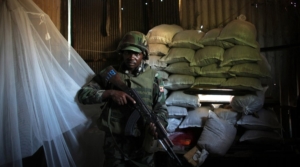 Principled humanitarian action can be restricted by sanctions in regimes in a number of ways, notably via UN sanctions programs and state-level laws criminalizing the provision of material support of terrorism. When humanitarian organizations need to pay taxes, registration fees or checkpoint fees to access populations in need, they may run afoul of these laws if they are paid to a terrorist organization or its affiliate. Other humanitarian aid activities that potentially violate counterterrorism provisions include visits to detainees, first aid training and provision of assistance, just to name a few.
Principled humanitarian action can be restricted by sanctions in regimes in a number of ways, notably via UN sanctions programs and state-level laws criminalizing the provision of material support of terrorism. When humanitarian organizations need to pay taxes, registration fees or checkpoint fees to access populations in need, they may run afoul of these laws if they are paid to a terrorist organization or its affiliate. Other humanitarian aid activities that potentially violate counterterrorism provisions include visits to detainees, first aid training and provision of assistance, just to name a few.
The term “humanitarian exemption” can relate to two different concepts, as described in a new briefing paper by the Harvard Law School Program on International Law and Armed Conflict, Understanding Humanitarian Exemptions: UN Security Council Sanctions and Principled Humanitarian Action. These exemptions can apply to listed individuals who need humanitarian assistance or to humanitarian organizations and actors. The latter allows these actors to “deliver their services without the risk of contravening those regimes,” the paper explains. Read more.
